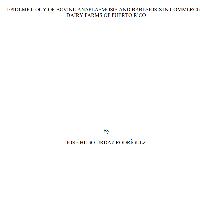Resumen
-
The objectives were (1) to determine seroprevalence of Anaplasma marginale and Babesia
bovis in adult lactating dairy cattle (2) to assess associations of geographical and farm
management factors with the seroprevalence of A. marginale and B. bovis in commercial dairy
farms, and (3) to identify ecologic factors associated with the abundance and spatial distribution
of Rhipicephalus (Boophilus) microplus larvae in Puerto Rico (PR). Serum samples were
obtained from 2,414 adult lactating cattle from 76 commercial dairy farms between August 2005
and December 2006. Ninety-six sites were sampled for tick larvae during the dry season (March
4-18, 2007) and the rainy season (August 13-26, 2007). Data on farm management factors were
obtained by an interviewer-administered questionnaire. Farm seroprevalence for A. marginale
ranged from 2.8 to 100% with an overall animal seroprevalence of 27%. Risk factors
significantly associated with A. marginale included pasture grazing as the main source to feed
cattle (OR= 6.4, 95% CI=1.3-33), observed monkeys on the premises (OR= 14, 95% CI=1.4-
137), use of 11% permethrin (Atroban®
; OR= 14, 95% CI=1.9-98), farmers who attended an
acaricide certification program (OR= 0.17, 95% CI=0.04-0.72), and lack of fly control methods
(OR= 5.7, 95% CI=1.3-25). Farm seroprevalence for B. bovis ranged from 0 to 52% with an
overall animal seroprevalence of 26%. Risk factors significantly associated with B. bovis included farms located in the north coastal region (OR= 0.21, 95% CI=0.05-0.86), dairy farms
with calf raising facilities (OR= 16, 95% CI=3.0-86), having more than four neighbors with
cattle (OR= 17, 95% CI=1.6-176), same producer owing more than one farm (OR= 7.3, 95%
CI=1.7-32), and use of government services to apply amitraz on cattle (OR= 5.5, 95% CI=1.5-
20). Moran’s I indicated that the spatial pattern of A. marginale and B. bovis seroprevalence is
neither clustered nor dispersed. Risk factors significantly associated with the presence of
R.(Boophilus) microplus larvae in PR during the dry season included average wind speed of 2.6
to 10.0 mph (OR= 0.07, 95% CI=0.01-0.63), more than 25% bushes and shrubs on the site (OR=
11, 95% CI=1.6-71), and presence of cattle on the site (OR= 26, 95% CI=3.4-188).
